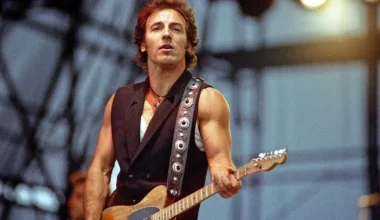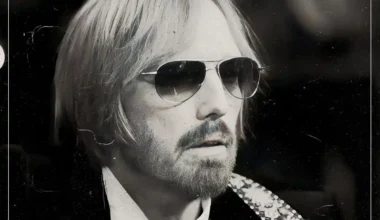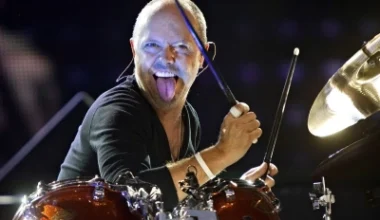As the 2000s emerged, Green Day faced an unknown downturn in their musical journey. While their recent albums have launched them to new heights within the punk genre. Their eagerness to experiment, demonstrated by “Warning,” didn’t adapt to the mainstream musical trends. While the pop-punk scene was thriving with bands like Blink-182 and Sum 41, Billie Joe Armstrong had higher aims.
Motivated by his contempt for George Bush’s controversial Iraq invasion. Billie Joe Armstrong penned ‘American Idiot’ as an outlet for his frustration. It was similar to a pop-flavored response to The Clash’s ‘London Calling,’. Armstrong set an exceptionally high bar for himself, believing that everything must measure up to this stroke of brilliance.
As the band contributed their own material, Armstrong was captivated by a short snippet from Mike Dirnt’s song, ‘Nobody Likes You.’ Eager to create his compact song, Armstrong developed ‘East 12th Street.’ Later, it merged with Tre Cool’s ‘Rock and Roll Girlfriend‘ to form the multipart opus, ‘Homecoming.’
A narrative began taking shape within the lyrics. Armstrong poured his creative energy into portraying the struggles of young individuals navigating 21st-century America. If ‘Homecoming’ marked the bitter conclusion of the characters’ story, ‘Jesus of Suburbia’ served as the sweeping epic to kick off this saga. While Armstrong remained true to his punk roots, he drew inspiration from classic rock.
When discussing the song’s inception, Armstrong was drawn to Queen’s epic compositions during their prime. And expressed his desire to create “the ‘Bohemian Rhapsody’ of the future.” While few songs can rival Queen’s masterpiece, ‘Suburbia’ certainly lives up to this aspiration.
Spanning nine minutes, Armstrong weaves a story of a young individual coping with a broken home. He relies on soda pop and Ritalin and eventually realizes their worth beyond a dead-end town. The song takes a dramatic turn during the ‘I Don’t Care’ section. It led Jesus to leave for the big city with a tear in his eye in the final movement, ‘Tales From Another Broken Home.’
Beyond the Queen’s influence, the song bears striking resemblances to the epic storytelling that characterized the golden era of rock and roll. While it echoes elements of ‘Bohemian Rhapsody,’ it also evokes the dramatic. And sweeping songs crafted by Pete Townshend for The Who, particularly those preceding his rock opera ‘Tommy.’ Examples include ‘A Quick One While He’s Away’ and ‘Rael.’
Despite the British rock influence, Armstrong’s lyrics resonated with every American teenager of the era. It empathizes with them much like Bruce Springsteen’s connection with downtrodden figures in his own work. The aftermath of this narrative would manifest in ‘Boulevard of Broken Dreams,’ but for these nine minutes, the world was Jesus’s oyster.








